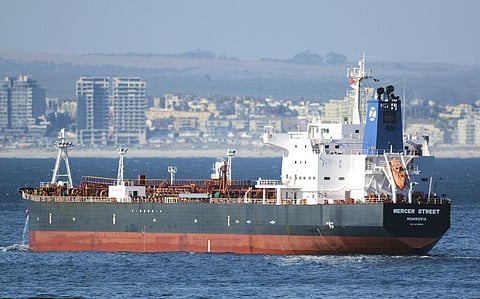

The US on Thursday clarified that Washington has not requested India to reduce the volume of its oil imports from Russia. However, they said, permitting an unrestricted Russian oil trade remains "unacceptable" and emphasized that the western price cap on Moscow's petroleum products is designed to compel Russia to continue selling oil at lower prices than it would otherwise obtain.
Speaking at an interactive session at the Ananta Centre, US Assistant Secretary for Economic Policy Eric Van Nostrand explained that the G7 price cap mechanism has successfully stunted a major source of funding for Moscow's war machine while maintaining a stable energy supply to Europe and emerging markets.
"Emerging markets like India benefited from the discounted price of Russian oil relative to global markets," Nostrand stated, asserting that the price cap mechanism was intended to pressure Russia into selling oil at lower prices.
Nostrand highlighted that the price cap is designed to foster a market in which Russia supplies energy at a heavily discounted price while maintaining the volume of energy supplied and simultaneously minimizing Moscow's profit.
In December 2022, the G7 grouping and its allies introduced a price cap on Russian oil as part of a series of punitive measures against Moscow in response to its invasion of Ukraine. The price cap restricts countries from paying more than USD 60 per barrel.
"However, taking steps to suddenly remove Russian oil from the market, such as by banning the use of Coalition services in any Russian oil trade, would risk spiking global oil prices further for the emerging economies most dependent on imported energy," Nostrand cautioned.
Acting Assistant Secretary for Terrorist Financing Anna Morris noted that Russia has been building up an infrastructure of ships, insurers, and other maritime services with providers that have opaque ownership structures in view of the price cap.
"In the second half of 2023, we observed Russian efforts to build up an infrastructure of ships, insurers, and other maritime services with providers with opaque ownership structures and a history of sanctions evasion activities, sometimes colloquially known as the 'shadow fleet'," Morris said.
She added that while it is a standard feature of sanctions regimes for the target to invest in avoiding the legal reach of sanctions, Russia's investments diverted money from the battlefield, forcing them to buy tankers rather than tanks.
The two US officials are currently in India to discuss various aspects of the global energy market.